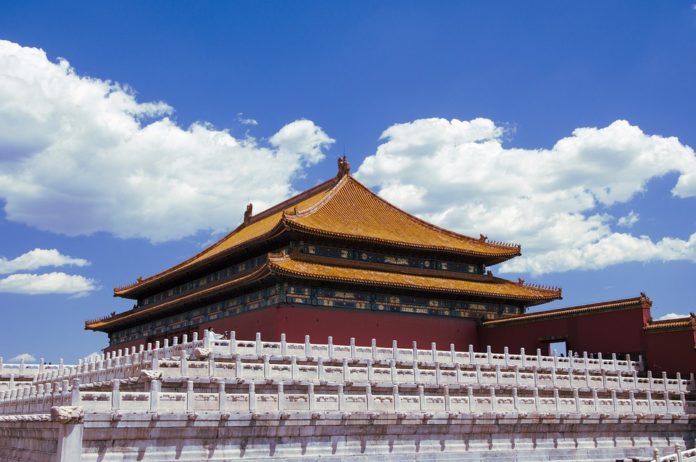The senior-most official for China’s banking regulatory system has outlined its policy priorities in the wake of the COVID-19 pandemic, while also highlighting the essential role played by finance in historic economic development.
In an essay written for Qiushi Guo Shuqing (郭树清), chair of the China Banking and Insurance Regulatory Commission (CBIRC) and party secretary of the Chinese central bank, cast his eye upon the instrumental role played by finance in the rise of great powers since the start of the modern era.
“The rise and decline of a nation is often closely tied to its financial capability,” writes Guo. “In the 17th century the Netherlands was capable of claiming domination of the seas – its financial system which possessed the initial hallmarks of modernity played an extremely important role.
“The subsequent financial revolution in England drove the industrial revolution, helping it to become the ’empire on which the sun never sets.’
“Since reform and liberalisation, China’s financial sector has achieved historical leaps, establishing a modern financial system which possesses its own unique traits.
“Faced with complex and severe economic conditions, we must pragmatically strengthen opportunity awareness and risk awareness, further raise the quality and efficiency of financial services, and drive economic development back to the path of normalcy as soon as possible.”
Key financial policy priorities for Chinese regulators in the wake of the COVID-19 pandemic will include:
- Accelerating financial supply side structural reforms. “Financial supply-side structural reforms play a defining role in economic supply-side structural reforms…[they] expedite the ease of financing, reduce the costs of the real economy, and raise the efficiency of resource allocation.” Guo called for “improving the corporate governance of legal person financial institutions, rectifying the two malign tendencies of major shareholder manipulation and internal personnel control, and continually improving capital market infrastructure,” while also “accelerating the establishment of the second and third pillars of aged care.”
- To the greatest extent possible advance disposal of non-performing assets. “Credit risk is the fundamental risk for the financial sectors, and toxic assets are lesions the we must have the determination to expunged…covering up and procrastinating will only delay the treatment, and eventually bring severe consequences.” Guo called for financial institutions to adopt more prudential accounting systems, effectively categorise assets, fully disclose non-performing assets, and expand disposal efforts.
- Prevent a rebound and return of high-risk shadow banking. “Shadow banking risk is ‘low ignition point’ and ‘high-intensity,’ and has the potential to create limitless damage. Shadow banking risk has been significantly contained following unrelenting regulation, but the soil for it to survive has not been fully expunged, and slight loosening of regulation is very likely to lead to a full return, and complete wastage of prior efforts.” Guo said that future regulatory efforts would focus on simple and transparent regulations, standardisation of cross-sector financial products, clear demarcation between publicly offered and privately offered products, separation of risk between on and off-balance sheet operations, separate accounts for entrusted operations and own operations, and clear separation between deposit products and investment products.
- Prompt disposal of risk for different types of institutions. Guo called for “targeted and effective policy implementation directed at institutions with different risk,” lawful disposal of high-risk financial groups, and encouraging the adoption of multiple methods for capital supplementation including the introduction of strategic investors.
- Steady expansion of external financial sector opening. Guo called for striving to achieve higher levels of financial opening, and the creation of an “open, transparent, stable and predictable regulatory and policy environment,” while also encouraging Chinese and foreign financial institutions to engage in fair competition, deepen cooperation, learn from each other and expedite innovation. China hopes to “actively participate in international financial regulation and rules formulation; strengthen international macro-policy coordination, and raise its international speaking rights.”
- Pragmatically strengthen education and protection of finance consumers. China hopes to “strengthen the penetration of financial knowledge, and enable urban and rural residents to all understand that investment is risky, and that there are no high-return low-risk financial products in the world.” This will entail the establishment of “value investing, rational investing and risk prevention awareness” amongst both institutional and retail investors.
- Further strengthen the leadership of the party with regard to financial work.”The most fundamental [aspect] of effective performance of financial work is to uphold the centralised and unified leadership of the party – this is the greatest systemic advantage that we have,” writes Guo. “Over the past several years we have seen a series of risk events and corruption cases arise during work and implementation – the most important factor lay in the severe weakening and absence of party leadership and party development. In recent years, experience in the removal of financial risk points clearly indicates that strengthening party leadership is the most fundamental and effective measure.”




